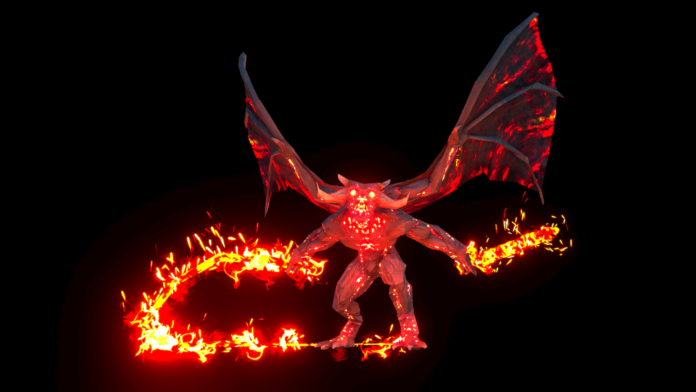It’s a hard pill to swallow if you’ve worked on your game for five years, only to launch it to a largely indifferent audience. That’s what happened to solo developer Simon Taylor (working under the name Plastic Cow Games) and his game Smash Dungeon. First week’s sales were 117 units. That’s a 4% wishlist conversion. After that, the game never gained any traction and faded away in obscurity. “For now it feels like the journey comes to an end for me as a solo developer”, says Taylor. “It looks like I have no choice but to return to full time work due to the poor sales of Smash Dungeon.”
Although he loves the freedom that comes with working by himself, Taylor admits it becomes quite an isolated existence after a while. “I was spending all day alone in the house coding and it takes a toll. No office banter or general chit chat, and no one to talk problems through with. It’s all on you.” Still, if the game had been successful, he would have continued working as a solo developer. He would however listen to his own advice: “Make sure you make time to have a life and stay in touch with people.”
Why did you become a solo developer?
“I first became a solo developer in 2004 making games for mobile phones using J2ME. At the time I’d been a software developer working on business orientated software for 5 years but I was unhappy. I saw the rise in mobile games which reminded me of the 8 bit era. Ever since owning my first computer, a Commodore VIC20, I had always had an interest in games programming and this just felt like the right time. I made a few J2ME games as a solo dev and also collaborated on a couple with another solo dev -which did ok- but I mostly got by with contract work.”
What are the biggest advantages of working solo?
“You can write rubbish code and there’s no one to complain. Hahaha! In all seriousness, for me, it’s about freedom. Freedom to choose what I want to work on and to push myself harder each time. Pivot or change direction if I want or completely can something if I feel it’s not working. Not the freedom of when I work because I’ve always been quite disciplined with putting in a minimum amount of hours and treating it as I would any other job. So yes, the freedom of WHAT I do, not WHEN.”
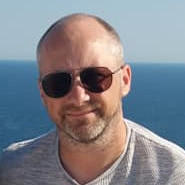
And the biggest pitfalls?
“It’s a lonely existence after a while. No office banter or general chit chat, no one to bounce ideas off or throw ideas at you when you are struggling. And no one to talk problems through with. It’s all on you. I find it also hard to switch off. I saw someone else mention a work life balance and being a solo dev can become all consuming. There are times when I’ve not been able to sleep and you end up getting up in the middle of the night because you’ve solved a problem while lying in bed and your office is right there, so why not.”
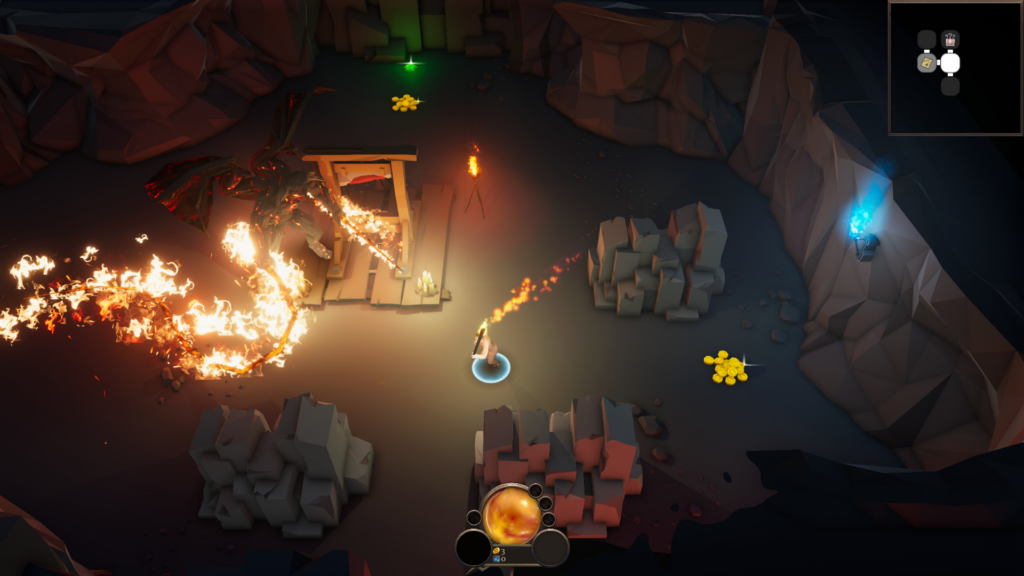
What’s your creative process?
“I’m very influenced by the games I’m playing at the time. For Smash Dungeon I had a good idea of what I wanted. A mix of arcade games in Smash TV and Gauntlet Slayer while keeping the arcade couch co-op vibe. This came about from searching Steam for similar couch co-op games and not really finding anything suitable other than Gauntlet Slayer which I’d played to death. During development I wanted to give it enough of its own personality which is where the idea for placing an emphasis on consumable power-ups came. I felt this helped with the arcade type approach I was wanting.”
“I’m also influenced by the technical challenge. Sometimes it comes from seeing a particular feature in a game and wondering how they did that and then recreating it and building something completely different around it. Or I’ll be browsing the asset store and something catches my eye and I’ll think about what I could make with it.”
How do you stay motivated through (years of) development?
“Motivation is easy when starting a project but gets harder as a game takes longer. I’ve never had something spiral out of control like Smash Dungeon. When you’ve spent two years making something you just keep saying to yourself ‘what a waste of time it would be to not finish it now’. Having said that, if after two years someone told me it was going to take another three I would have canned it!”
“Sometimes it’s easier to put something on the back burner when you’re losing motivation, give yourself a break and then come back to it later. I’ve often been surprised by how good something is when I’ve come back to it after initially getting fed up. I did take some time off during Smash Dungeon to make a small mobile title, just so I could remember that feeling of finishing a project.”
Will you ever work in a team or is it only solo for you?
“It looks like I have no choice but to return to full time work now due to the poor sales of Smash Dungeon. If the game had worked out I would probably have continued as a solo dev but I would happily have worked in a small team. Maybe another programmer full time and then contracted art & music as required, but that’s looking like a bit of a pipe dream now. I’ve worked in small teams before and it’s always been fun. You get to meet some great people.”
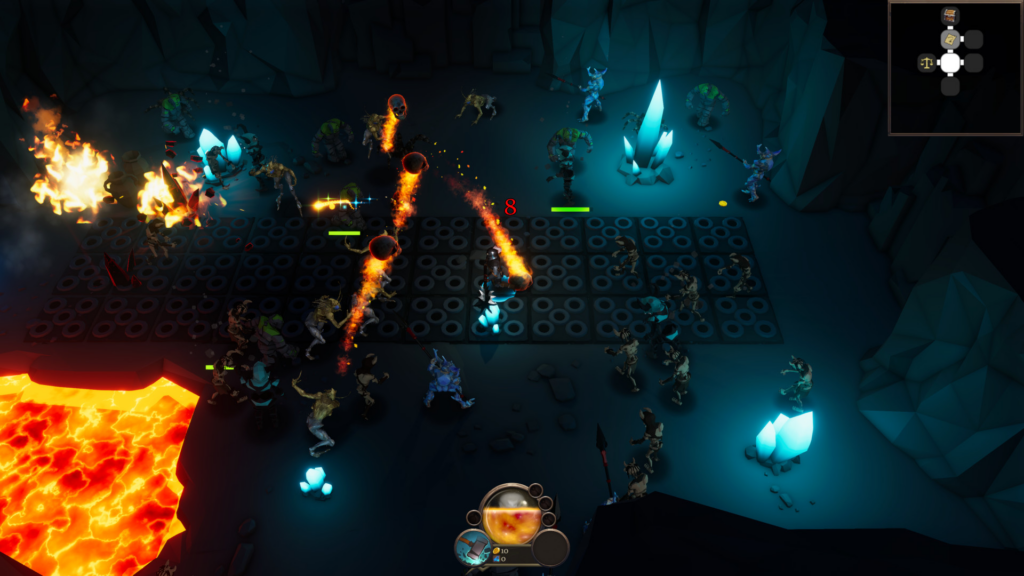
It took you 5 years to develop Smash Dungeon and unfortunately it didn’t do as well as you hoped. What’s next for you?
“For now the journey feels like it’s come to an end as a solo dev. If I’m fortunate enough to find work that allows me to continue doing solo game dev in a part-time capacity then I would love to. While developing Smash Dungeon I wrote down so many ideas that I would like to come back to. Some good, some not so good, but I’d enjoy playing around with them. And I’d love to try Unreal and Godot.”
What’s ultimately the biggest lesson learned from this project?
“Get your gameplay and gameplay loop right asap and don’t just rely on only your own judgement. Give it to other people to try. For me giving it to others has always felt difficult, but it’s something I need to get past if I am fortunate enough to try again.”
The toll on your mental health can be quite high for a solo developer. How do you deal with that?
“Yes it can get quite stressful. A couple of years ago I had a health scare and was sent to hospital with chest pain that may be a possible heart problem. I was in A&E from 8pm till 6am waiting to be seen and they ruled out a heart attack and said it was brought on by stress. The doc advised some breathing exercises (Wim Hoff) and despite being sceptical at the time I feel it did some good.”
“I mentioned in my post-mortem about losing a family member and these are things you can never account for. Regardless of your circumstances they will always have an impact on you. I think that loss along with my brother’s earlier struggles and the solo dev of Smash Dungeon all contributed to the health scare.
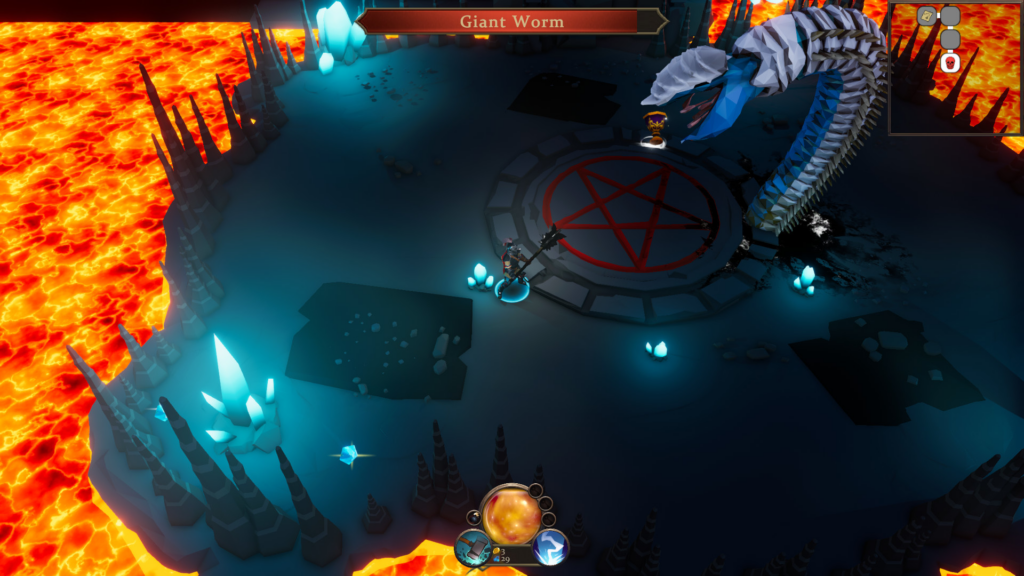
“From a solo dev perspective for me the two biggest stress related issues I felt were isolation and lack of income. Other than saying hello to the neighbours or the odd chat on a school run I could go weeks and the only two people I’d see were my partner and my daughter. Add to that pre-covid I was spending all day alone in the house coding – it takes a toll. It’s not so bad now, as my partner now works 3 days a week from home and I’m making more of an effort to get out and see people. Though sometimes I do miss the general chit chat or the chance to thrash out an idea with a colleague that being part of a team would give.”
“The other big stress is the lack of income while working on a project and not knowing if it’s going to put bread on the table. This became huge for me as time went on and the wishlist numbers only went up one or two a day. But it was also a driving force to pull my finger out and finish the project. We’ve all heard the advice about not quitting your job so I’ll not repeat that. I will say however, make sure you make time to have a life and stay in touch with people.”

